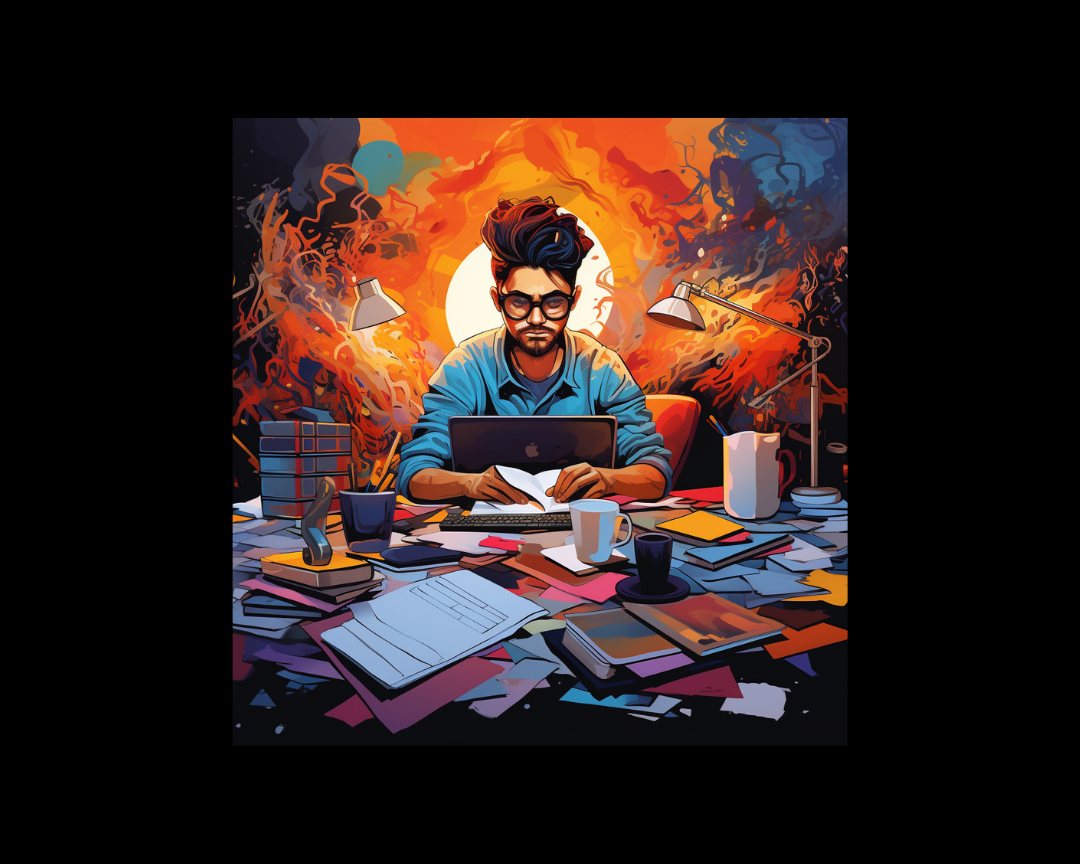4 Poetry Prompts To Get You Writing
Alright, folks! Are you ready to get those creative juices flowing and write some poetry that'll knock your readers' socks off? Well, buckle up...
-Jun-30-2025-06-00-27-8317-PM.png)
Every writer knows the feeling: you sit down to write, fingers poised over the keyboard, and absolutely nothing happens. Your brain feels like it's wrapped in cotton, your creativity has apparently packed its bags and left town, and that cursor blinks at you with the judgmental persistence of a disappointed parent. Welcome to the writer's paradox – the more desperately you need something to say, the more elusive words become.
The blank page doesn't care about your deadlines, your ambitions, or your growing panic. It just sits there, pristine and mocking, waiting for something brilliant that your mind refuses to produce. But here's the secret that separates professional writers from perpetual aspiring ones: the ability to write compelling content even when inspiration has gone AWOL.
The biggest lie writers tell themselves is that good writing requires the perfect moment of inspiration. This romantic notion – that creativity strikes like lightning and writers simply transcribe divine messages – has probably destroyed more writing careers than any other misconception.
Professional writers understand a fundamental truth: inspiration is unreliable, but systems are not. The most productive writers don't wait for lightning to strike; they create conditions where ideas can emerge naturally. They write through the fog, knowing that clarity often comes through the act of writing itself, not before it.
Research from Stanford University's creativity lab shows that consistent creative output depends more on routine and process than on sudden bursts of inspiration. Writers who maintain regular writing schedules produce significantly more high-quality work than those who write only when "inspired."
The key is reframing your relationship with the blank page. Instead of viewing it as a test of your worthiness as a writer, see it as raw material waiting to be shaped. Every professional writer has stared at that same blank page thousands of times – the difference is they've learned to start typing anyway.
Generic writing prompts like "write about your childhood" or "describe a sunset" rarely generate compelling content because they lack specificity and emotional stakes. Effective prompts create constraints that force your brain to work within defined parameters, often leading to unexpected creative breakthroughs.
Try the "What If" exercise: take any mundane situation and push it to extremes. What if your morning coffee shop had a secret basement where they held philosophical debates? What if every elevator in your city stopped working simultaneously? These scenarios force your imagination to fill in gaps and explore consequences.
The "Eavesdropping" technique involves writing down fragments of conversations you overhear, then building stories around them. That snippet of dialogue between strangers becomes the opening line of a short story, the conflict that drives a scene, or the emotional core of a character study.
Personal inventory exercises work surprisingly well when you're stuck. List your strongest opinions, your strangest experiences, your most embarrassing moments, or your unpopular beliefs. Each item becomes a potential seed for deeper exploration. The key is moving beyond surface-level observations to examine why these things matter to you.
The most powerful writing often emerges from the most ordinary experiences, but you need to develop an eye for the extraordinary within the mundane. Every day you encounter dozens of micro-stories, fleeting observations, and emotional moments that could become compelling content – if you know how to recognize them.
Start carrying a notebook or using your phone to capture random thoughts, overheard conversations, interesting details, or questions that occur to you. The goal isn't to write complete stories – it's to collect raw material that can be developed later when you're sitting in front of that blank page.
Pay attention to your emotional reactions throughout the day. What made you angry? What confused you? What made you unexpectedly happy? These emotional triggers often contain the seeds of compelling writing because they reveal what you actually care about, which is far more interesting than what you think you should care about.
The "what doesn't belong" exercise helps you notice story potential in everyday situations. Look for the person who seems out of place, the detail that doesn't fit the pattern, the reaction that surprises you. These anomalies often point toward interesting stories waiting to be uncovered.
Consider keeping a "question journal" where you record things you wonder about: Why does that person always sit alone? What's the story behind that abandoned building? What would happen if social media disappeared tomorrow? Questions are often more valuable than answers because they create the curiosity that drives compelling narratives.
Counterintuitively, creative constraints often produce more interesting work than complete freedom. When you can write about anything, the infinite possibilities become paralyzing. When you must write exactly 100 words about the contents of your refrigerator, your brain focuses on the specific challenge rather than the overwhelming vastness of all possible topics.
Try the "one location" constraint: write an entire story that takes place in a single room, focusing on dialogue, character development, and internal conflict rather than external action. Or attempt the "no adjectives" challenge, forcing you to find strong nouns and verbs that carry emotional weight without descriptive padding.
Time constraints work particularly well for breaking through creative blocks. Set a timer for 15 minutes and write continuously without stopping to edit, judge, or even think too carefully about what you're producing. The pressure of the ticking clock often bypasses the internal critic that normally prevents experimentation.
Genre constraints can push you into unfamiliar territory that generates fresh ideas. If you normally write literary fiction, try crafting a horror story. If you're a poet, attempt a business memo. The unfamiliar format forces you to think differently about language, structure, and purpose.
Word count constraints teach compression and precision. Try telling a complete story in exactly 55 words, or writing a character sketch in precisely 250 words. These limitations force you to eliminate unnecessary elements and focus on what truly matters to the piece.
Memory is not a filing cabinet but a creative act, and each time you remember something, you're essentially rewriting it. This makes personal experience an inexhaustible source of material, even when you think you've already written about everything interesting that's ever happened to you.
The key is approaching memory with specific questions rather than vague nostalgia. Instead of "write about your childhood," try "write about the first time you felt genuinely embarrassed" or "describe the moment you realized an adult had lied to you." Specific emotional moments often contain universal truths that resonate with readers.
Try the "parallel lives" exercise: imagine how your life might have unfolded if you'd made different choices at key moments. What if you'd taken that job in another city? What if you'd spoken up in that crucial conversation? These alternative histories often reveal insights about your actual choices and their consequences.
The "stranger's perspective" technique involves rewriting your own experiences from the viewpoint of someone else who was present. How would your elementary school teacher remember that day you got in trouble? What would your ex-partner say about your relationship? This shift in perspective often reveals aspects of familiar stories you've never considered.
Sensory archaeology can unlock forgotten memories and their emotional resonance. Focus on specific smells, sounds, textures, or tastes from your past, then follow those sensory threads to see what stories they lead to. The scent of your grandmother's kitchen might unlock not just memories but insights about family, tradition, and loss.
Writer's block isn't a character flaw – it's a skill gap that can be addressed with the right strategies and consistent practice. The difference between writers who publish regularly and those who struggle with perpetual "someday" projects often comes down to having reliable systems for generating material when inspiration refuses to cooperate.
At Hire a Writer, we understand that professional writing demands more than waiting for perfect moments of creativity. We help writers develop the practical skills, systematic approaches, and creative frameworks that turn blank pages into compelling content on deadline, every time.
Ready to transform your relationship with the creative process and build a sustainable writing practice that works regardless of how inspired you feel? Let's develop your professional writing systems today.

Alright, folks! Are you ready to get those creative juices flowing and write some poetry that'll knock your readers' socks off? Well, buckle up...

As writers, we aspire to reach the “perfect” final draft for whichever project we have in mind. We want to produce works of art that take readers...

You're standing before Vermeer's "Girl with a Pearl Earring," lost in the enigmatic gaze that has captivated viewers for centuries. Imagine that...